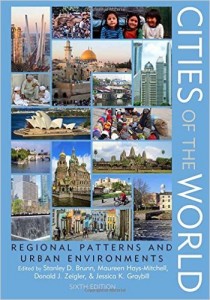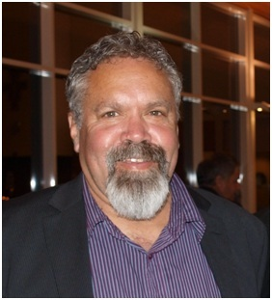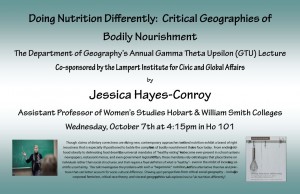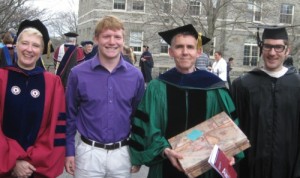
Along with Stanley D. Brunn, and Donald J. Zeigler, Professor Hays-Mitchell and Associate Professor Graybill co-edited the Sixth edition of Cities of the World: Regional Patterns and Urban Environments.
The publisher notes: ‘This edition focuses specifically on urban environmental issues, social and economic injustice, security and conflict, the history of urban settlement, urban models, and daily life. Building on 2015 as the Year of Water, the book introduces urban water concerns as a common undercurrent running through all chapters. The contributors explore how water affects cities and how cities affect water—from glacier loss to growing aridity, sea-level rise, increased flooding, potable water scarcity, and beyond. Vignettes of key cities give the reader a vivid understanding of daily life and the “spirit of place.” ‘
Congratulations!





